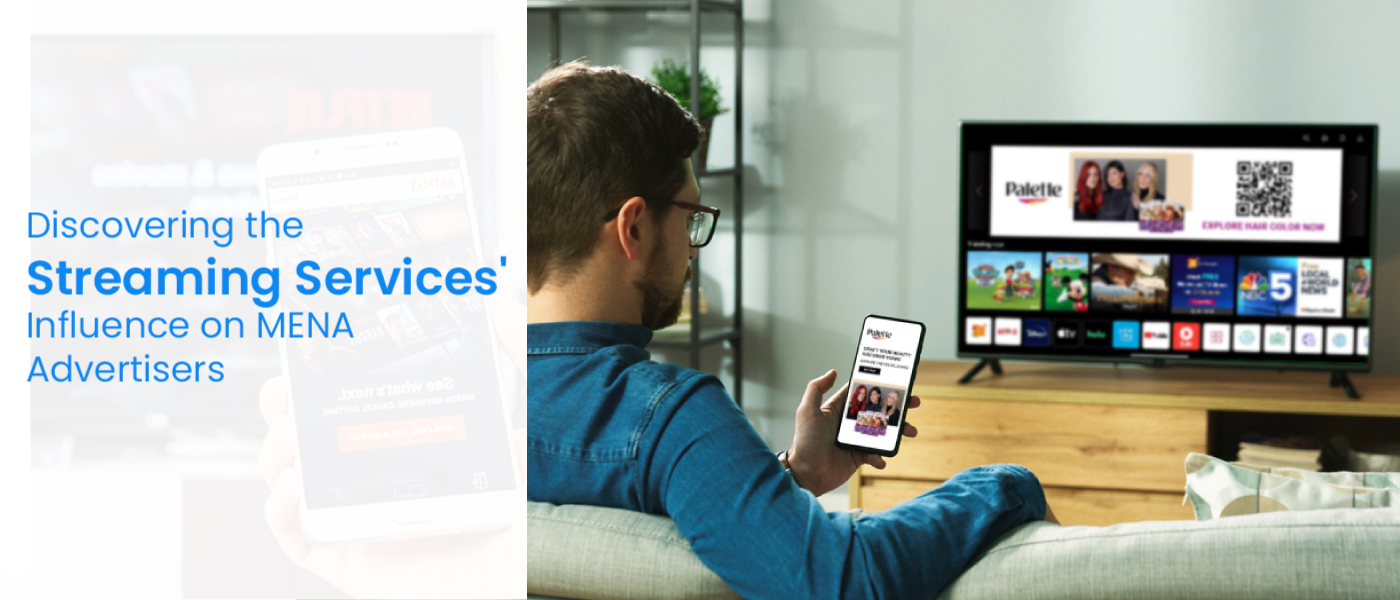As the Back-to-School season approaches in the Middle East and North Africa (MENA) region, both shoppers and brands are gearing up to navigate the evolving landscape of advertising. The traditional TV advertising that once dominated the marketing arena is now facing a transformative shift, with Connected TV Advertising taking center stage. In this article, we will explore the changing shopper behavior in the MENA region and how Connected TV Advertising has emerged as a powerful solution for brands seeking to engage with their audience in a more personalized and effective way.
The Evolving Connected TV Advertising Landscape in MENA
Connected TV Advertising in the MENA region has seen remarkable growth in recent years. As consumers increasingly shift towards digital platforms, advertisers have recognized the need to adapt their strategies to meet their target audience where they are most engaged – on Connected TVs. Unlike traditional TV advertising, which offers limited targeting options and relies heavily on mass reach, Connected TV Advertising enables brands to deliver personalized, relevant messages to specific audience segments.
The MENA region boasts a high rate of smartphone and internet penetration, making Connected TVs a natural extension of consumer habits. As shoppers in the region continue to embrace digital content consumption, Connected TV Advertising presents an opportunity for brands to create immersive and interactive ad experiences that resonate with their target consumers.
Amplify Your Message on Premium Back To School Websites & Apps with ArabyAds Connected TV Advertising
A Back-to-School Perspective: Connected TV Advertising for Brands
Back-to-School is a critical period for both shoppers and brands. For shoppers, it marks a time of preparation and planning for the upcoming academic year. On the other hand, brands see it as a prime opportunity to connect with their audience, drive sales, and build brand loyalty.
Connected TV Advertising in the MENA region provides brands with a unique advantage during the Back-to-School season. Here’s how:
- Personalization and Targeting: Connected TV Advertising empowers brands to deliver tailored messages to specific shopper segments. Through data-driven insights, brands can identify key demographics, interests, and behaviors to serve relevant ads that resonate with potential customers. This level of personalization enhances the shopping experience and increases the likelihood of conversion.
- Data-Driven Insights: Connected TV platforms provide detailed data analytics, allowing brands to measure the performance of their campaigns accurately. Advertisers can gain valuable insights into viewer behavior, such as ad completion rates and engagement metrics. This data-driven approach enables continuous optimization and refinement of ad strategies for maximum impact. Linear TV Advertising, on the other hand, lacks such detailed analytics, making it challenging to measure the exact impact of ads.
- Cost-Efficient Reach: Connected TV Advertising offers a cost-effective way to reach a vast audience in the MENA region. Brands can allocate budgets more strategically, reducing ad wastage and improving return on investment (ROI). In contrast, traditional Linear TV ads, especially during prime-time slots, can be expensive, making it difficult for smaller brands to afford prominent placements.
- Changing Viewer Habits: Viewers in the MENA region are increasingly embracing digital platforms and streaming services, leading to a shift in their media consumption habits. Connected TV Advertising allows brands to meet viewers where they are most engaged and spend their time, ensuring ad relevance and better audience receptiveness. Linear TV Advertising may face challenges in reaching audiences as their viewership habits evolve.
- Flexibility and Agility: Connected TV Advertising offers more flexibility in ad delivery, allowing brands to quickly adjust their campaigns based on real-time insights. This agility is especially crucial in today’s fast-paced digital landscape, where trends and audience preferences can change rapidly. Linear TV Advertising, being more static in nature, lacks this level of flexibility.
- Measurement and Optimization: Connected TV Advertising provides detailed analytics on ad performance, allowing brands to measure the impact of their campaigns accurately. This data-driven approach enables continuous optimization and refinement of strategies to ensure maximum ROI.
- Brand Storytelling: Connected TV Advertising offers a dynamic canvas for brands to tell compelling stories. By leveraging high-quality visuals and immersive experiences, brands can create emotional connections with shoppers, leaving a lasting impression that goes beyond the Back-to-School season.
The changing shopper behavior in the MENA region has paved the way for a significant shift in advertising strategies. Connected TV Advertising has emerged as a potent tool for brands seeking to connect with their target audience in a more relevant and engaging manner during the Back-to-School season and beyond.
With personalization, interactivity, and measurable results at the forefront, Connected TV Advertising offers a unique opportunity for brands to adapt and thrive in the ever-evolving landscape of marketing in the MENA region. As shoppers’ habits continue to evolve, embracing Connected TV Advertising will undoubtedly be the key to success for brands looking to make a lasting impact in the digital era.
Source: ArabyAds





